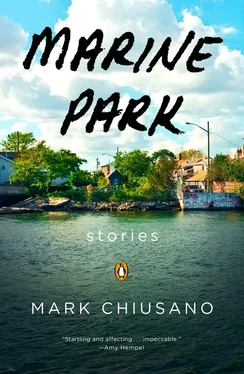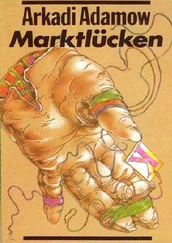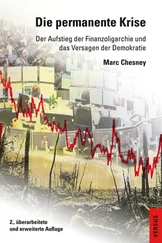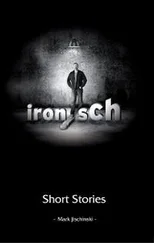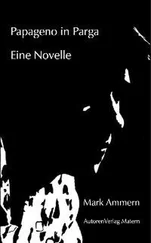Jesus, you say. So do you know, like, when a table sits down, how much they’ll tip you?
David nods, but he looks uncomfortable. He is holding his glass just a little above the bar, resting it on his fist. How do you know? you say. Is it racial?
David says yes, when you force him to. Who’s worst? you say, triumphant. David looks over his shoulder. Black people, he says. Not all of them, he adds, quickly. There are rules and exceptions.
Of course, you say. How about white people? David shrugs. They’re OK. Sometimes they feel bad for us. And Latinos? you ask. Oh, the best, David says. Andreo agrees.
You all look at the wall together, as the bar empties out around you. Isabella, who works in the kitchen, leaves, because she is meeting a man whom the other two don’t know, who comes to pick her up in a car. You wonder who owns a car in this neighborhood. You don’t. You thought about getting one, the two of you, when she was there, sharing the registration, putting your two names on it. You had talked about the places you could drive. Skiing upstate. You don’t know how to ski, she said. A weekend in New Jersey. The Catskills. I’ll believe it when it happens, she said. You rarely plan for anything. It seems nice, you like it best, when things carry you along their way. You were never one for omens. Recently you were walking by a billboard near the BQE, and when you looked up, a young man that you knew from elementary school was staring down at you, a smiling senior at St. Francis College. It was an old poster. Some of the center was showing through, so you could see an ad for Kars4Kids. You know it is that ad, because you’ve seen it many times before. You never get farther than the BQE, but some days, walking by there, hearing the trucks scream by, you think about hitchhiking across the country to see her. It could happen. It could be done.
The smell from David’s pocket is still pungent, and it makes you feel vigorous and safe. What do you do? David asks.
You dismiss this with a wave of your hand. This and that, you say. But then you tell them. They nod noncommittally. Their disinterest vaguely alarms you. It reminds you that you are in a bar sitting next to two people who you’ve never met before. You wonder how long this can go on for. Desperate now, with the pale ale down to its last fingers, and the bartender swabbing the counter with a greasy, heavy rag, you turn to David and Andreo and you say, What are your hopes and dreams?
And they take this question at face value. They nurture it, turn it over in their heads. They mull it like the wine that they are drinking, that they are finishing. Both have double shifts in the morning, starting at nine a.m.
David answers first, and says, I want to work in nonprofits. This you dismiss with your own disinterest, and you say to Andreo, What about you?
Andreo works his hands out of the folds of his coat, and he puts them both in the air, and he says, I want to use these, and he waves them.
What do you mean? you ask him.
I want to be a writer, he says. I want to write news.
And you swell up with a joy that doesn’t make sense at the time, as he tells you about enrolling in classes in the CUNY journalism school. Do you know CUNY? he asks. Of course you know CUNY — who doesn’t? You want to take his name, his number, watch for his byline in the morning paper, or on Internet updates: Reporting contributed by Andreo—, from Brooklyn, Washington, Miami, Kandahar. It will happen, you tell him, you lie to him. It will. And he smiles, and puts his hands back in his pockets, and knows that things will change.
You walk outside and David and Andreo shake hands with you, and they don’t offer to share the sweet smell in David’s pocket, but they confirm that they do go to this bar often, and you think that maybe you might frequent it, on the way home from work, from your office in the city, riding on the black backs of suits and jackets. Maybe you might stop, have a drink, find Andreo, ask him about his work, before going home to the empty apartment, where the only view is billboards.
You walk home. The lights on Pacific Street are all off. All the streets here are named for oceans, as if the ocean might reclaim them, any day. Inside your apartment, you take off the wet shoes on your feet, the wet socks. You take off your black jacket, your sweatshirt with a hood. You look at the pictures on your walls and find that the drink doesn’t help anymore, and you pick up the phone and you make a call across the country.
You hold your breath until she picks up. You haven’t talked in a while. Hello? she says. Hello? Eamon, she says, and that lets you speak.
Hello, you say. I missed you. I missed you tonight. She sighs into the speaker, and says that she missed you too. The phone connection isn’t enough for you, and you ask her if she has her computer nearby, and you connect to the Internet, and through the magic of machines and cameras she is in front of you, in pajamas, her hair tied on top of her head.
You can’t say anything. You don’t. You don’t want to talk about anything at all anymore. You don’t tell her about David or Andreo or the sweet smell or the car that took Isabella away. That is all over now, like another lifetime, and the waiters fade to nothing in your head.
Are you OK? she asks you, and you shake your head, one way and then the other. You’re making me upset, she tells you. And because you don’t know what else to do, and you don’t want to make her upset, you reach a hand out toward the computer screen, even though you know it can’t do anything. You reach a hand to where her hand is on her computer screen, as if to hold it. You hold nothing but the hot section of the screen itself, the energy of keeping your pictures alive pumping up out of it, like a stove. You watch her, your hands almost touching, the swirls in her palm visible on the high-definition screen, and it is as close as you can come, or as much as she can give you, for you.
In the afternoon, Andrew went to Marine Park to get a haircut. He’d been at an interview in the morning, for a job that would make him not rich but comfortable, more comfortable than now — with the possibility of riches, of an extra house in the Hamptons, if you followed the curve of the borough out into the Atlantic. At the interview, one partner at the firm had asked if he could tell a little about himself, his fingers hanging from the résumé like bangs, the paper resting on the crook of his arm. Well, Andrew said, I grew up in Brooklyn. Marine Park, he said. The partners nodded. I’ve been working in the city mostly since college. The résumé partner stopped him. That’s funny, he said. How so? Andrew asked. Only a true Brooklynite would say going into the city. The partners grinned together, as if their grins connected into one grin. It’s true, Andrew said.
The barber’s was nearly empty this late in the afternoon. Andrew had come after work, had driven down Ocean Parkway, past the Q train at Kings Highway, Quentin Road for the last few blocks. He hadn’t told anyone he’d be coming. At the barber’s, Javi, who had been cutting his hair since he was a child, was looking at the sports cycle on the television bolted into the wall above his chair. He was scrolling through his phone. Hey, Andrew said. My friend, said Javi. Have a seat. I have no one. Andrew sat and Javi wrapped the light black tarpaulin of a smock around him. Underneath Andrew felt cool and dry, while Javi went to work, without talking, on his head.
• • •
Before Andrew got contacts, he had relished the surprise that came after taking off his glasses at the beginning and staring blankly, unseeingly, at the mirror while Javi worked. The clip of Javi’s scissors vibrated from one ear to another — ever since Andrew had decided that he didn’t want just a buzz cut, that he was looking for something more sophisticated. Buzz cuts had been summer haircuts, for when he and his friends were playing the St. Thomas Aquinas basketball camp near Flatbush, run by Chris Mullen, the archetype of the neighborhood, who’d gotten out in a big way. He’d played for Xaverian, starred there, was a white kid in an era when there were few. He played in a white way, as far as Andrew could remember, even when he was teaching the clinics — jump shots, dribbling drills. Nothing much like inspiration. What Andrew had liked better were the nuns peering over the hedges at the outdoor basketball hoops they set up for those months. While the boys ran bare-chested up and down the asphalt, shouting for the ball, skinning knees, the nuns sat in plastic chairs propped against the thin fences, watching, or continuing their circumnavigations around the garden. The garden looked cool and inviting to Andrew, surrounded by trees, without the heat echo of the basketball courts.
Читать дальше
